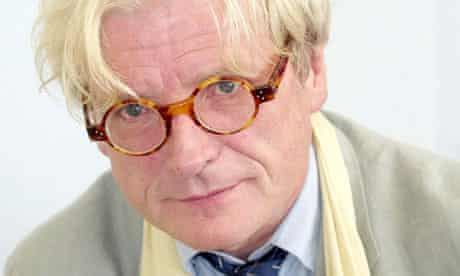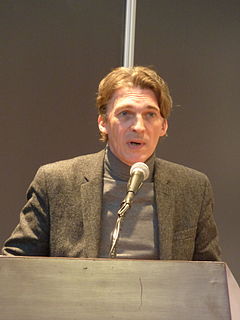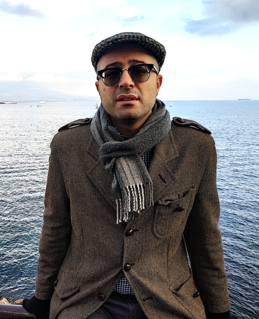Top 130 Modernism Quotes & Sayings - Page 3
Explore popular Modernism quotes.
Last updated on November 28, 2024.
Postmodernism is, almost by definition, a transitional cusp of social, cultural, economic and ideological history when modernism's high-minded principles and preoccupations have ceased to function, but before they have been replaced with a totally new system of values. It represents a moment of suspension before the batteries are recharged for the new millennium, an acknowledgment that preceding the future is a strange and hybrid interregnum that might be called the last gasp of the past.
Modernism really started with people getting infatuated with the idea of "it's the twentieth century, is this suitable for the twentieth century." This happened before the First World War and it wasn't just the soldiers. You can see it happening if you read the Bloomsbury biographies. It was a reaction to a great extent against Victorianism. There was so much that was repressive and stuffy. Victorian buildings were associated with it, and they were regarded as very ugly. Even when they weren't ugly, people made them ugly. They were painted hideously.
A dreaded society is not a civilized society. The most progressive and powerful society in the civilized sense, is a society which has recognized its ethos, and come to terms with the past and the present, with religion and science. With modernism and mysticism, with materialism and spirituality; a society free of tension, a society rich in culture. Such a society cannot come with hocus-pocus formulas and with fraud. It has to flow from the depth of a divine search.
The central problem of our age is not liberalism or modernism, nor the old Roman Catholicism or the new Roman Catholicism, nor the threat of communism, nor even the threat of rationalism and the monolithic consensus which surrounds us. All these are dangerous but not the primary threat. The real problem is this: the church of the Lord Jesus Christ, individually corporately, tending to do the Lord’s work in the power of the flesh rather than of the Spirit. The central problem is always in the midst of the people of God, not in the circumstances surrounding them.
What is tragic today is that there is a number of Muslims who think that all the solutions are to be found simply by external actions. They don't have to do anything within themselves. This is a deeply Western idea - modern, Western idea, where you try to improve the world without improving yourself. And this is what the Muslims who talk about others putting their heads in the sand and that "We are doing jihad and we are political" and so forth, they are emulating a very important mistake of modernism.
I started moving away from poets like Wallace Stevens and Hart Crane and started reading poets like, again, Karl Shapiro, Howard Nemerov, Philip Larkin, and the British poets who were imported through that important anthology put together by Alvarez - and those would include Thom Gunn and Ted Hughes. And I think these poets gave me assurance that there were other ways to write besides the rather involuted style of high modernism whose high priests were Pound, Eliot and Stevens, and Crane perhaps.
Artists are looking for a new modernity that would be based on translation: What matters today is to translate the cultural values of cultural groups and to connect them to the world network. This “reloading process” of modernism according to the twenty-first-century issues could be called altermodernism, a movement connected to the creolisation of cultures and the fight for autonomy, but also the possibility of producing singularities in a more and more standardized world.
Jorge Luis Borges had the soapbox and the authority to complain about this myopic understanding of the duty of Latin American writers, which sometimes forecloses their unique modernism and experience of modernization in favor of a mythic past or an artificially constructed ideal national subject. So likewise in João Gilberto Noll, readers shouldn't expect samba and Carnival and football. The Brazilian national identity is not one of his primary concerns.
In translation studies we talk about domestication - translation styles that make something familiar - or estrangement - translation styles that make something radically different. I use a lot of both in my translation, and modernism does both. For instance, if you look at the way James Joyce presents Ulysses, is that domesticating a classic? Think of it as an experiment in relation to a well-known text in another language.
Gorecki, you know, there's a kind of personal thing there for me. I had, you know, kind of become obsessed with that sort of Soviet Bloc period. And actually, a lot of composers in the Soviet Bloc - Gorecki's not the only one - are writing for the harpsichord as a sort of reaction against enforced Soviet realism, expressionism, sort of enforced modernism.









